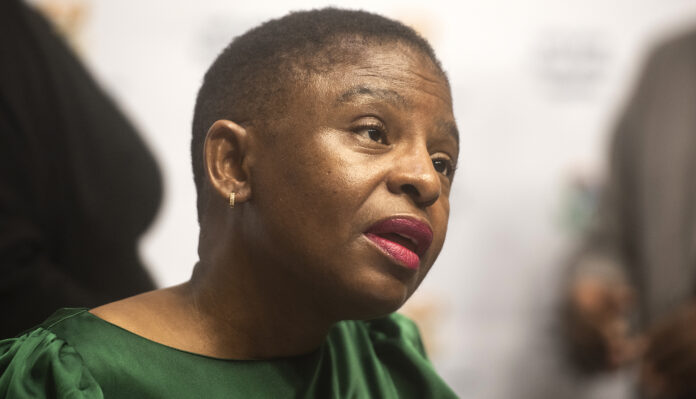The government has urged all sides involved in the conflict between Israel and the Islamic Republic of Iran to immediately defuse the situation and exercise restraint.
Minister in the Presidency, Khumbudzo Ntshavheni, said the cabinet has urged Israel, Iran, and the US to comply fully with international law and allow space for peaceful dialogue.
Ntshaveni, who was speaking during a media briefing on Thursday, said this includes giving the UN an opportunity to conduct inspection and verification of Iran’s uranium enrichment programme and its broader nuclear capacity.
“The world cannot afford the balkanisation of Iran by the sheer size of its population, geographic location, and mineral resources,” said Ntshavheni.
“As a continent, we in Africa are still suffering the consequences of the balkanisation of Libya 14 years later, with the escalation of terrorism across the continent.”
The US and other nations conducted strikes on Libya during the 2011 uprising, citing their intention to protect civilians.
These led to the overthrow and murder of Colonel Muammar Gaddafi, the then-leader of Libya, and the economic collapse of Libya, which former US president Barack Obama said was his worst mistake as president: failing to prepare for the consequences of Gaddafi’s overthrow.
Eight new laws passed
Along with the worries about global conflicts, the cabinet also applauded the government’s progress in implementing the recommendations from the state capture commission.
Ntshavheni reported that the cabinet received a briefing on the significant efforts undertaken to retrieve assets, prosecute those implicated, and restructure state systems to avert future capture.
According to her, the amount of assets recovered as a result of state capture has grown from R2.9-billion in October 2022 to R11-billion by March 2025.
To address corporate accountability, procurement, intelligence services, and corruption, eight new laws have been passed.
“Four state capture commission cases have been concluded, all with guilty verdicts; 11 other cases involving 51 natural persons and 27 companies are enrolled in court,” said Ntshavheni.
She said the Department of Public Enterprises has referred 71 former directors of state-owned enterprises to the Companies and Intellectual Property Commission (CIPC) for delinquency proceedings. So far, this has resulted in nine active court cases.
State capture
In the private sector, she said, the CIPC has completed reviews of 10 companies named in the State Capture Report.
Six investigations are still underway, and eight new referrals are being assessed by the Special Investigating Unit.
Ntshavheni stated that several measures have been implemented to prevent future incidents of state capture.
These include the establishment of the investigating directorate against corruption, which started operating on August 19, 2024, and the adoption of a national framework for the implementation of professionalism in the public sector, which was approved by the cabinet in October 2022.
She also confirmed that the National Anti-Corruption Advisory Council has completed its research into institutional reform proposals from the Zondo Commission.




